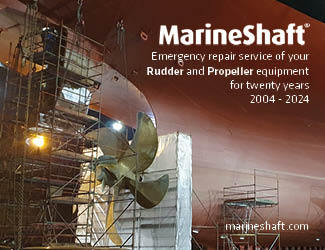At the European Shipping Week, the shipping community meets EU policy makers. In an interview with the HANSA, , Secretary General of the European Community Shipowners’ Associations (ECSA), demands more awareness among decision makers and a pro-active political vision
What is your main message to the decision makers in European politics?
Patrick Verhoeven: Think about shipping! Shipping[ds_preview] is not only the backbone of international trade, it is also an important generator of value-added and jobs. According to a recent study conducted by Oxford Economics, the European shipping sector generates 145 bill. € contribution to EU GDP and 2.3 million jobs. 40% of the world’s shipping fleet is controlled by European shipowners.
Such positive results, both for shipping and the wider maritime cluster, need to be brought to the attention of the policy-makers that took over the helm at the European Parliament and the European Commission. The new EU decision-makers should understand what shipping can do for Europe and what they, in turn, can do to maintain and foster that beneficial influence.
Do you think that the shipowners are integrated in a sufficient way in procedures, which lead to decisions, that affect their business?
Verhoeven: Yes, but we can always improve. The shipping sector is very diverse, with different, often very specialised, trades, operations and business models. We need to cooperate more intensely with all trade associations involved,
both at international and EU level, so that early warning systems function efficiently and that adequate responses can be generated in a timely and effective manner.
I see an important coordinating role for the two umbrella organisations; ECSA at EU level and the International Chamber of Shipping (ICS) at IMO level. We should not duplicate or rival with what trade-specific organisations do, but make sure we all work towards the same common goals, developing synergies wherever this is possible. Round tables have already been set up in London and Brussels to facilitate this process. An initiative like European Shipping Week very much stems from the desire to speak with one voice to policy-makers as well.
What can EU politics do to help the shipowner community to survive the current crisis and to remain competitive against asian shipowners? Do we need for example an »EU Flag« and an »EU Tonnage Tax System«?
Verhoeven: In order to ensure the perpetuation of the beneficial impact of European shipping on the EU economy and society, we need the continuation of measures that allow for a global level playing field. To preserve the competitiveness of the industry, the EU has given the possibility to Member States to apply a competitive fiscal and legal framework for shipping companies with its 2004 EU State Aid Guidelines to maritime transport.
Facts speak for themselves: EU-approved state aid measures, most notably in the form of tonnage tax, have allowed the EU-controlled fleet to remain competitive and to grow. On the contrary, those few Member States that have not introduced such measures have seen their controlled fleets shrink considerably. More importantly, the EU State Aid Guidelines for Maritime Transport preserved jobs and revenue generated by the EU shipping industry. It is estimated that the total economic contribution of the European shipping industry could have been around 50% lower in 2012, in terms of gross value added and employment, if Member States had not introduced tonnage tax regimes and other state aid measures.
How will the European shipowners market look like in one year?
Verhoeven: This is very difficult to answer, given that we have to deal with diverging markets and trades. Particularly sensitive will be the impact of environmental regulations on the short sea trades of course. We have already seen four route closures so far, and we expect others to follow. If we include forthcoming Ballast Water rules and the costly installation of treatment equipment, this sector may further lose out on its competitive position, unless counter-measures are taken. That is why the revision of EU short sea policy is so important.
The European Shipping Week is an important event where the shipping community meets politics. What do you expect from it?
Verhoeven: In the first place, I expect an increased awareness among policy-makers about what the shipping industry means for Europe. We are, by nature, a rather invisible, but nevertheless crucial enabler of trade and prosperity. That role needs to be highlighted and we hope European Shipping Week will mark the start of a process which goes beyond the event itself. Also, I hope the event will give an impetus to the sector to develop a pro-active vision about where policy, both at global and EU level, can help the sector meet its challenges, not in the least in terms of its overall sustainability. The current fragmentation of regulation and short-term thinking has to make way for a genuine long-term view, developed jointly with the industry.
Michael Meyer


















